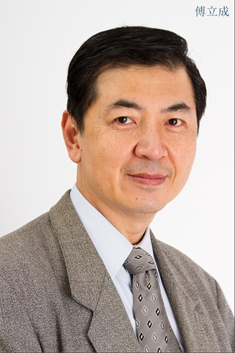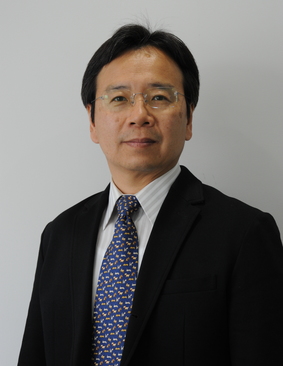日時・場所
2014年9月1日(月)
大阪国際会議場 (グランキューブ大阪) 大阪市北区中之島5丁目3番51号
講演
バンケット
概要
Dependability is an essential measure of system ability to provide services such as availability, reliability, safety, security, and maintainability. This concept has been widely and usually used in design and analysis of information systems. Due to the recent integration of information and energy systems/infrastructures, its importance in Energy Management System (EMS) has increased drastically. In this current trend and future promising EMS, it is widely expected that the so-called "Dependable EMS" (D-EMS) offers a unified theory and technology to establish a cooperative distributed EMS for different domains. They include large-scale transmission grid with high penetration of wind power, mid-scale distribution grid operated by SCADA, and community/building energy systems. The main aims of this mini-symposium are (i) to provide recent results related to the D-EMS, (ii) to discuss its future direction with participants from different majors, and (iii) to make an opportunity of networking with oversea researchers for the future international expansion of the idea of D-EMS.
プログラム
15:00-15:10
Opening Remarks
15:10-16:00
Power Demand Side Management in Smart Community
 Professor Li-Chen Fu (National Taiwan University)
Professor Li-Chen Fu (National Taiwan University)
Abstract: The issues of energy conservation and carbon reduction have been discussed for years. Despite the increasing price of electricity, the residential power demand does not decrease correspondingly. The peak of electricity usage in summer is particularly high, continuingly hitting record high. The problems registered from human factors could be resolved by the power of science and technology, i.e., being capable of managing the energy demand at residences. With the support of next generation power grid, i.e., Smart Grid, Demand Side Management (DSM) is able to maximize the efficiency of provider’s energy generation and minimize the waste of customer’s energy usage to produce the best schedule of energy-involved activities for each home. It would be a win-win situation of benefit to energy providers and residents. For our DSM method, a schedule optimization method for both single home and community is developed. For residents, they not only can minimize their electricity cost but also can alleviate Peak-to-Average Ratio (PAR) of their total power consumption distribution. Minimization of electricity cost is achieved through optimal scheduling of daily activities, which simultaneously takes into account the distributed generation from Renewable Energy (RE) sources, the energy storage devices, and the dynamic pricing. In addition, an optimal PAR can be achieved via cooperation among multiple homes in a community. For energy providers, an optimal PAR can make the power system stabler, more dependable, and hence they benefit from the more balancing energy distribution and lower cost of energy generation.
16:10-17:00
Design of Cyber-Physical Energy Systems based on Reachability Analysis
 Professor John Koo (The University of Hong Kong)
Professor John Koo (The University of Hong Kong)
Abstract: Stringent regulatory requirements and advances in information and communication technology have enabled Cyber-Physical Energy Systems to change the ways in generating, transmitting and utilizing energy. The joint continuous-discrete dynamics that exhibits in the systems can be modeled in the framework of hybrid systems. Reachability analysis provides a quantitative way to analyze how system states of a hybrid system can or cannot be reached from an initial set. By encoding a given safety specification as system states, verification can then be conducted by performing the corresponding reachability analysis. Furthermore, the hybrid system can be synthesized to satisfy the specification via the reachability analysis. In this talk, we will provide a brief overview of reachability analysis and our recent works in this area.
17:00-17:45
High Resolution Simulation for Estimation and Prediction of Offshore Wind
 Professor Kazuhisa Tsuboki (Nagoya University)
Professor Kazuhisa Tsuboki (Nagoya University)
Abstract: High wind is necessary for wind-power generation. In Japan and its surroundings, a high wind condition is usually accompanied by convective clouds and it shows high frequency variation of wind speed. For example, convective snow clouds in the monsoon cold wind stream cause highly-fluctuating strong winds. Typhoons and mid-latitude cyclones also cause high winds in association with convective clouds. The variation of high winds caused by these atmospheric disturbances is very large in time and space owing to convective cloud activity. Consequently, a very high-resolution simulation is necessary for estimation and prediction of offshore wind power using a cloud-resolving model. To perform such a high-resolution simulation with explicitly-calculating convective clouds, we have developed a cloud-resolving model named the Cloud Resolving Storm Simulator (CReSS). A detailed cloud microphysics and an atmospheric turbulence are considered in the model. It has been used for real weather prediction with high resolution. In the present study, estimation and prediction of offshore wind power were performed using CReSS. The output data of calculations will be used for an estimation of offshore electric power generated by wind turbines. Moreover, the CReSS model could provide basic data for an energy management system experiment in a large area since it calculates solar radiation as well as wind speed in a domain including most Japan.
17:45-17:50
Closing Remarks
18:00-20:00
Banquet
申込方法
参加するには,事前登録が必要です.
可能であれば,"8月22日"までに
E-mailにて
t-wada@ist.osaka-u.ac.jp
まで下記の情報を添えてお申し込みください.
なお,講演の聴講は無料ですが,
バンケットは有料です.当日,6,000円を会場受付にてお支払いください.
登録情報:
- 登録カテゴリ (どれか一つ):
- 講演会とバンケットともにご参加 (6,000円)
- 講演会のみご参加 (0円)
- バンケットのみご参加 (6,000円)
- 敬称 (どれか一つ): Mr. / Ms. / Prof. / Dr.
- ご芳名: [名 (Personal) Name] ([Middle Name]) [姓 Last (Family) Name]
- ご所属 (英語表記にてお願いします):
- ご住所:
- Email:
- IEEE 会員資格の有無:
企画・主催
本ミニワークショップは JST CREST の研究領域 "分散協調型エネルギー管理システム構築のための理論及び基盤技術の創出と融合展開" における下記のチームが企画・主催するものです.
- 上田チーム
洋上風力発電に必要な洋上風況把握と予測方法の開発
研究代表者(所属) 上田 博 (名古屋大学地球水循環研究センター 教授) - 造賀チーム
パワーデバイスレベルまで考慮した高精度なシミュレーション技術に関する基礎的理論および方法論の構築
研究代表者(所属) 造賀 芳文 (広島大学大学院工学研究院 准教授) - 杉原チーム
多数の経済主体が参加する公平かつ合理的な電力ネットワークインフラの最適運用手法
研究代表者(所属) 杉原 英治 (大阪大学大学院工学研究科 准教授) - 薄チーム
マルチエネルギーシステムの動的解析技術
研究代表者(所属) 薄 良彦 (京都大学大学院工学研究科 講師) - 藤崎チーム
ネットワーク構造をもつ大規模システムのディペンダブル制御
研究代表者(所属) 藤崎 泰正 (大阪大学大学院情報科学研究科 教授)